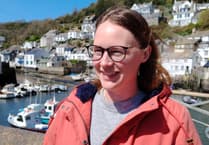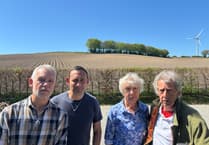A major seven-nation project has been launched to help preserve and promote Cornwall’s language and wider cultural heritage by combining immersive technologies with participatory storytelling.
The £2.5-million project REVIVE is being led by Anglia Ruskin University (ARU), and will use new digital technologies including extended reality (XR) to encourage the wider use of two endangered European languages: Kernewek (Cornish), and Griko, spoken in parts of southern Italy.
It is estimated that at least half of all languages spoken today will disappear or become seriously endangered by the end of this century. According to the United Nations, a language dies out every two weeks.
Kernewek became extinct by the late 18th century but underwent a dramatic revival during the 20th century and has been reclassified as endangered by UNESCO.
It is estimated there are now around 500 fluent Cornish speakers, plus thousands more who can speak basic Cornish. Publications, films and music are being produced in the language, and new street signs in Cornwall display names in both England and Cornish.
““Languages are part of our shared heritage and identity,” said Dr Fabrizio Galeazzi, ARU associate professor in Heritage and Creative Technologies. “The loss, which is happening at an alarming rate worldwide, is leading to cultural homogenisation.
“Cornish and Griko are both endangered but are faring very differently. While Griko is a severely endangered language and is considered one of the most at risk in Europe, Cornish is what we call an ‘awakening language’ and is enjoying a resurgence after becoming officially extinct.”
Speakers will working with members of ARU’s StoryLab research institute to create new digital content, immersive experiences and stories to be displayed as part of temporary exhibitions in community venues in the Duchy.
Using a combination of 3D extended reality technologies, data visualisation and archival research, the aim is to bring the language to life for younger generations and promote the county’s heritage.
Researchers will also create a digital platform and repository, so material being collected and created is available online. This will include testimonies collected by locals, such as photographs, film and audio, as well as new XR digital narratives.
“Public engagement is key to the survival of minority languages,” said Dr Galeazzi. “By involving local communities in the creation of digital content and stories, and then sharing these as widely as possible – both online and through in-person experiences and exhibitions – we aim to make sure every young person in Cornwall is aware of their county’s incredible linguistic heritage.”
Emma Jenkin, coordinator for Kowethas - Cornish language in the community, said: “We at Kowethas are delighted that out of the many endangered languages in Europe, Cornish has been chosen for this prestigious project. It’s hoped the use of innovative technologies will open the language up to a younger generation, giving them tools to access Cornish language and heritage in a whole new way.”
REVIVE involves a consortium of academic and industry partners from the UK, Italy, Germany, Portugal, Romania, Serbia and Estonia. It has been launched with funding from the EU’s Horizon Europe programme. Work will begin in March.

.jpeg?width=209&height=140&crop=209:145,smart&quality=75)


